Reaction to: ‘DIFFERENT PATHS TO BUILDING PEACE AND BUILDING STATES IN RWANDA AND BURUNDI’, published in the Danish Institute for International Development, by Simon Turner.
– by Gatete Nyiringabo, Center for Human Rights, University of Pretoria, 2015.
Introduction
In some parts of the world, a wanton assertion of incorrect information with the intent to mislead the opinion is called lying and can be a nasty carrier stopper for a researcher. However, when it comes to reporting on Africa, the level of intellectual rigor lowers significantly: While there remain many highly qualified and respectable authors, when it comes to reporting on Africa, there are no requirements and standards: anything goes… Africans believe, and rightfully so, that it is a sign of western arrogance, bordering racism and leave it at that.
In the past, publishing globally was costly, and quiet complicated for those outside the system, including Africans. Western reporters were thus the sole rainmakers and kingmakers of Africa to their home audiences. Auctioning their influence to the highest bidder, and portraying foes as heroes and heroes as foes depending on the interests being served at the time. Predictably, this has had devastating effects on the African continent. That’s aught to change!
Quoting Abraham Lincoln, Bob Marley sung: ‘you can fool some people some time, but you can’t fool all the people all the time’. With the advent of social media, Africans have no excuse; Instead of simply dismissing was is written about them as lies, henceforth, they should tell their (part of) the story themselves, or have a say on what is told about them; and tell it to the same audience that has been led to believed fabricated versions, written with ill-advised agendas. That is the essence of the writers’ endeavor: To tell the African story how it is, evidenced by acceptable data from reputable sources.
Background
This paper aims to rebut the validity of the report: ‘Different paths to building peace and building states in Rwanda and Burundi’, written by Simon Turner and published by the Danish Institute for International Studies. It seeks to expose the biased agenda of DIIS/the Author, and indeed to provide a more nuanced picture of the reality on the ground. It focuses on Rwanda. It was written by a Dane and a Rwandan, living and working in the context.
The overall weakness of the report is that the Author falls into the recurrent trap of ethnocentrism: mirroring his own society and cultural reality to the context of Rwanda and Burundi and imposing his belief system to be the “right” way ahead for any developing society. He approaches the issue with great prejudice and preconceived African narratives. He concludes by giving a lesson of how things should be done. Anything else, he predicts, is bound to fail.
The level of manipulation the report contains is highly unprofessional and should be below the standards of what the Danish Institute for International Studies (DIIS) publishes. The many factual mistakes it bears, underscore the authors unwillingness to understand the Rwandan and Burundian societies or to seek multiple sources of information.
It is apparent that the author has conducted biased research and pursued to proof a personal opinion, which he has had for several years, while ignoring a significant amount of evidence contradicting his hypothesis – evidence, he must have encountered en masse – but chose not to include in his report, as it would have undermined his theory.
Link his report: http://en.diis.dk/files/publications/Reports2013/RP2013-22_Simon-Turner_Mirror-images_web.pdf
Our response:
The Author acknowledges that: ‘The superficial similarities [of Rwanda and Burundi] have led to the two countries being treated on similar terms by external powers – during colonization and since – often with tragic effects’. But he spends 36 of the total 44 pages of his report doing just that; comparing Rwanda and Burundi, because he feels ‘…there is a methodological advantage in comparing two states’. Then draws blanket conclusions on what he perceives as similarities.
His rhetoric implies that Rwanda and Burundi have endured similar violence in the 1990s. This is part of a discourse to trivialize the genocide into some form of inter-ethnic civil war. While in Burundi both ethnic groups carried out killings against each other, the author fails to recognize that in Rwanda Tutsis were rendered vulnerable by 30 years of an oppressive regime and had no means of defending themselves, making the killings on-sided, targeting Tutsis, in a Genocide where more than one million people perished. Scholarly research confirm: ‘unlike other mass killings in the Great Lakes region, which can best be described as partial genocides (as in Burundi in 1972), or massacres, we are dealing here with a total genocide, resulting in the death of anywhere between 500,000 and a million civilians, overwhelmingly Tutsi, killed in approximately one hundred days, beginning on April 7, 1994’ (Des Forges 1999, 15)
Elsewhere in his report, he argues that ‘post-conflict Rwanda and Burundi have moved in two very different directions in terms of state building, where Rwanda is focusing on security and development above democratic inclusion, while Burundi is focusing on power sharing and political pluralism above security and development’.
This is a simplistic analysis. It is not necessarily true that Rwanda and Burundi have moved in two different directions. The two countries may be moving at different paces, but in both countries there are no prioritization of equally crucial priorities. Pursuing development is not incompatible with pursuing democracy. There are no tangible indicators that Burundians are enjoying more democracy and freedom than Rwandans, just because power is formally allocated along ethnic lines. One’s freedom does not stem from one’s ability to say publicly what his ethnic group is, but on his capacity to realize his rights without having to say of what ethnic group his is.
The restrictions imposed on ethnic profiling in Rwanda are based on genuine and relatively recent historical facts. This indeed poses certain limits for the media and politicians on what they publish or declare in public.
While it is difficult for western citizens to comprehend that the media is told not to adopt certain editorial lines, or that politicians are not allowed to say what they want, when they want, lest we forget, people in the west are highly educated and politically mature. They are not easily manipulated. In Europe, democratic systems and institutions have been in place at least since the end of WW-II. In some states they have gradually matured for hundreds of years.
But even in Europe, when there is some level of economic strain we see the rise of xenophobia, as well as extreme right wing parties and neo-nazi movements gaining ground. These are the types of movements that are banned in Rwanda, at the moment. Only less than twenty years after the genocide.
Franklin D. Roosevelt once said: ‘Democracy cannot succeed unless those who express their choice are prepared to choose wisely. The real safeguard of democracy, therefore, is education’. Democracy means the power by the people, but the people may only exercise it if they are empowered and know what it entails. Mechanisms should thus be put in place for mass civic awareness; this is being built in Rwanda at the moment. Soon, all Rwandans will have the intellectual and political awareness of French and Greeks. Only then, may we allow the ‘Front National’ and the ‘Golden Dawn’ to campaign freely in Rwanda. For now, people need to be protected against ethnic propaganda. Also, the wounds of the genocide are slowly healing. Victims, widows and orphans need their dignity. While we call for freedom of expression, we must not forget that human dignity and protection against humiliating treatment are also rights protected by customary international law[1], the same applies to Genocide denial.
No one in Rwanda needs a politician who will hold a press conference at a genocide memorial and declare; ‘this memorial is a lie because hutus and tutsis killed each other!’ all in the name of freedom of expression. How do survivals and rwandans in general feel about that? Especially when such statements comes from a politician whose mother has been convicted of killing women and children during the genocide[2]. Failing to grasp the fatal consequences of a rushed western democracy and freedom of expression in Rwanda today is simply ignorant.
Let’s take Kenya’s recent experience as an example: The country had been enjoying democracy for a long time. Its civil society had impressed the world by successfully mobilising people to reject an inadequate constitution fronted by the government. However, the divisive declarations made during and after presidential campaigns led the people to turn against each other following the dispute of electoral results in 2008; and five years later to elect a president and a vice president who are both indicted by the International Criminal Court for orchestrating those crimes against humanity. That is how deep ethnic divide goes in terms of undermining democracy: People are made so apprehensive that they are ‘willing to vote for a devil they know rather than an angel from another ethic group’ – so to speak… The consequences of such ethnically based democracy may have serious repercussion on the human rights of all Kenyans, including those who aspired for the true rule of law and human rights to prevail.
We understand why the author supports democratization in the world (so do we), but lest we forget, millions of dollars, including from donor countries, are routinely sunk into these types of elections, which do not bring about positive change, but instead relapse countries’ stability for decades behind.
The author goes on to states: ‘Rwanda’s institutions lack popular legitimacy’:
Really? How can citizens fail to legitimise institutions that are (1) not corrupt (According to Transparency International, Rwanda is least corrupt country in Africa); (2) Efficient (According to the World Bank Rwanda is best in “doing Business” in Africa and among the best in the world); (3) whose leaders have been elected by the people in free and fair elections (reports of the European Union and the African Union observers mission are unanimous on the legitimacy of the elections); (4) and whose institutions and leaders they asses annually – reference made to the National Dialogue held annually, during which, each authority from minister to sector mayor presents his/her performance report live on television, and citizens from all walks of life are given an opportunity, using toll free hotlines, social media and SMS to join in and intervene on any issues of their daily life that have not been properly addressed, as well as complain of poor performance by authorities. Here authorities that are found to have failed the population are immediately relieved of their duties; (5) which is the best country in achieving the Millennium Development Goals; (6) has lifted one million people out of poverty in 5 years etc. (Source for 5 and 6: United Nations Development Programme: http://www.rw.undp.org/content/rwanda/en/home/mdgoverview/mdgs-progress-and-the-macroeconomic-state-of-rwanda–2012.html.
It is important to point out that institutions in Rwanda have still fare to go and the government and its people are aware of this. Admittedly, they remain behind in comparison with Danish institutions. But the average Rwandan has only experienced immense development in the past 20 years and without having Denmark to compare with, Rwandans are fully supportive of their institutions.
Later, the Author states: ‘I would argue, however, that even the economic achievements might not be as impressive as they are made out to be. Rwanda is still number 166 on UNDP’s Human Development Index, just below average for sub-Saharan Africa’.
Here, the author does not consider the baseline, where Rwanda is coming from to achieve this, and the rate of progression in the last twenty years. That is really outstanding in all aspects; especially, considering that the longstanding civil war and unrest which culminated in the genocide of one million Tutsis in 1994, had led to huge losses of life, skilled human capital and left the country in deep social trauma and broken administrative systems. In addition to that, Rwanda faces obvious impediments to economic growth, being a severely landlocked country with almost no natural resources, a high population density and in the midst of a war-torn region.
Despite all that, Rwanda embarked on very ambitious social welfare programs. Here is a country where the 12-year primary and secondary education is compulsory and free for all. Tertiary education is free in public Universities, for only the best performing students, while the remainder joins the many private universities coming up in the country. Also, Healthcare is free for all Rwandans. A country that has rolled out programs such as one cow for every poor family, the eradication of grass thatched houses, one computer for every child, while laying optic fiber in every corner of the country for a faster and better access to information and technology.
As far as fighting poverty is concerned, there are increasing opportunities within vocational training, tertiary education, and entrepreneurship. There is also a feeling of safety. Security in Rwanda is second to none: the ability to move around freely and safely in Rwanda is as good, if not better than in Denmark (According to Jeune Afrique, Kigali is the fourth best city to live in, in Africa behind Cape-town, Johannesburg and Casablanca:http://www.jeuneafrique.com/Article/S04p019.xml0/afrique-libreville-addis-abeba-tunisafrique-le-top-10-des-villes-ou-il-flasseait-bon-vivre-un-cment-exclusif-j-a.html)
The feeling that every Rwandan, regardless of his religious, gender, ethnic or regional background, is important to the development of his country is very alive. This is increasingly affecting the youth’s mindset in Rwanda. Through government’s emphasis on information technology, the youth is being exposed to cutting age innovation, but also to modern democratic models and progressive governance approaches from around the world.
Mr. Simon Turner goes on to say: ‘security is achieved through surveillance rather than social justice’: For one: in every country security is achieved through surveillance (lest we forget terrorism happening in Kenya and everywhere in the world and unfortunately also happening on small scale in Rwanda). Rwanda has just as many good reasons as Denmark to secure the population against individuals and groups, whose agenda is killing, inciting fear and divisionism. And based on their respective geographic locations, the threat is more real in Rwanda than it is in Denmark.
As on the allegation that ‘there is lack of social justice in Rwanda’: This is shocking! The author can’t help not to see African society outside of ethnic lenses. To him it seems impossible for a Tutsi minority to be accepted in their own country by a Hutu majority without duress. This is an obsolete mindset. People are capable of evolving. With the right policies, people from different ethnic background – real or fabricated – can live together peacefully. This is not only true for the west.
In an African context, Rwanda is actually a leading nation in terms of social justice: On the judicial level: there were the Gacaca, and now the Abunzi (both community-based courts); on socioeconomic levels, the Umuganda, the Ubudehe, One cow per family, One computer per child, free and universal education and healthcare. On a political level there is the mentioned annual national dialogue the ‘Umushikirano’. Last but not least: women hold 65% of seats in parliament, which sends an empowering message to younger women and girls in the society. This is social justice at its best, which Rwandans had only dreamt of 20 years ago and which is still improving day by day. Again, the Rwandan people are aware that there is still a long way to go, but what matters for the poor members of the community is to see tangible results directly impacting their lives.
The author plays down post genocide progress. In response I would refer him to an Article by Dr. Pierre Damien Habumuremyi, Rwanda’s Prime Minister, who puts it succinctly as follows: ‘In the First and Second Republic studying in Rwandan schools from primary to higher learning institutions was a favour. Being admitted into secondary and universities was not based on one’s merit. It was instead a result of ethnic and regional segregation. Today this has completely changed. Rwandans are free to go to school without any form of discrimination. Rwandan students attend secondary and university studies because of their ability and performance. This new policy has helped to increase the numbers of students in the country’s schools. For example, the number of primary schools increased from 1671 in 1990 to 2594 in 2012, in the same period the numbers of pupils increased from 1, 030,000 to 2,400,000.
The number of secondary schools increased from 175 to 1466, the number of secondary school students from 26,251 to 600, 000; the higher learning institutions increased from 7 to 31 and the number of students from 1,500 to 80,000. These figures show that the number of schools and students increased by more than 500 percent!’[3]
Later in the report, the author states ‘issues of ethnicity have simply been banned from public discourse […] by the victors’. Indeed the government – what the author refers to as the victors – has banned ethnic division. But they have not done so arbitrarily; they merely enforced a provision enshrined in the preamble of the Rwandan Constitution:
‘We, the People of Rwanda,
- In the wake of the genocide that was organised and supervised by unworthy leaders and other perpetrators and that decimated more than a million sons and daughters of Rwanda;
- Resolved to fight the ideology of genocide and all its manifestations and to eradicate ethnic, regional and any other form of divisions’
Needless to say that this constitution was overwhelmingly voted by a population, traumatised by the horrors of ethnic stigmatisation that led to the genocide of over one million people (not approximately 800.000 as the author states), who were appalled by the consequences of ethnic division and were eager to embrace unifying and appeasing policies.
There is however nothing new about such legislations: they are perfectly consistent with the International Convention on the Elimination of All Forms of Racial Discrimination, Art. 3 of the Israeli Constitution; Section 6 of the Danish Constitution, which prohibits ‘Discrimination, Societal Abuses, and Trafficking in Persons: The constitution and law prohibit discrimination based on race, gender, disability, language, or social status’
The author predicts that Burundi on the long run will be more stable. While welcome Burundi’s lasting stability, we fail to comprehend his reasoning that Rwanda is doomed because divisionism has been banned from the public discourse. Despite what the Mr. Turner purports, there is no place on earth where dividing people has led to lasting peace, while uniting them has led to ultimate conflict. Tribalism and lack of unity are the major causes to Africa’s many conflicts – clearly also his bread earner. It is known to the author that every Rwandan knows if they are Hutu or Tutsi, that the term Hutu and Tutsi is used daily in new papers, that it is openly discussed both on political and grass-root level in Rwanda. Films are produced over Hutu and Tutsi youth who fall in love with one another and get married. Not least, Hutus who have resisted tribalism, to the cost of their lives, have been made national heroes – the schoolgirls of Nyange, the late Prime Minister Uwiringiyimana Agathe – to name but a few. Again, like many before him, the author wants to appear clever and sensational. What is not allowed is to use the term with the intent to advance an insensitive or discriminatory agenda.
On Page 13 of his report, the author seems to emphasize the fact that historic ethnic divisions were linked to Morphology in Rwanda, while negating the fluidity with which a person could transit from one ethnic group to another based on their economic status. That theory is disingenuous in many ways, we will just name two: If one goes a layer below the Tutsi and Hutu etiquette, there are clans called Abega, abazigaba, Abakono, Abacyaba, etc., which are shared by both Hutus and Tutsis. It is therefore illogical to assert that people are of two distinct ethnic groups while they share the same sub-ethnic groups; Secondly, Hutus and Tutsis share the same language, dance, livelihood, outfit and diet; all characteristics that determine an Ethnic group.
Debates on ethnic cohabitation – not division – are frequently and openly held in Rwanda, as well as other issues regarding the power itself, including on the presidential term limit (see postings on this blog: gateteviews.blogspot.com): Not least, Rwanda is among the few countries in the world to recently pass a law on Media self regulation.
However these debates are not conducted in an adversarial sensational and populist manner – like in the west. Debates are conducted observing one sacrosanct rule: no ethnic division. And again, that is established by the preamble of the Rwandan constitution.
We, the people of Rwanda:
- Resolved to build a State governed by the rule of law, based on respect for fundamental human rights, pluralistic democracy, equitable power sharing, tolerance and resolution of issues through dialogue [our emphasis].
But why are these checks in place? During the Genocide, media and political parties were used to call for mass killings of Tutsis. In the famous ‘Hate Media Case’ (Prosecutor v. Nahimana, Barayagwiza, and Ngeze, Case no. ICTR-99-52-T http://www.jstor.org/stable/4093416) The U.N. Tribunal found that mass media hate speech constitutes Genocide, Incitement to Genocide, and Crimes against Humanity. And that indeed “media of hate’ played a pivotal role in the Genocide against Tutsis.
After the genocide, the Rwandan people were understandably weary of ethnic propaganda and ideological hatred and were anxious to rid their society of it, which is why they opted for consensus, dialogue and unity.
Also, the author fails to acknowledge that Rwandans have not had the privilege to go through the 300 years of development towards a free and open society that Danish people have – since ‘The Age of Enlightenment’ in 1690, and almost 1000 years of uninterrupted education of the Danish population, which are key to the values and privileges that Danes enjoy today. And what Danes are proud of, Rwandans – Hutu and Tutsi alike – are also proud of where they are today, comparing to where they come from, and with their historical and cultural developmental.
A new political perspective:
The President of Rwanda Mr. Kagame and his ruling party the Rwandese Patriotic Front (RPF) have made extraordinary socio-economic strides. Their government has lifted one million people out of poverty in 5 years; what Prof. Paul Collier, Author of “The Bottom Billion”, called an impressive developmental ‘hat trick’ characterised by rapid growth, sharp poverty reduction and reduced inequality. The ruling party also draws cadres from across ethnic groups and has historically been chaired by Hutu and Tutsi individuals alternatively. This performance is recognised by the Rwandan people, the donors and – even by Rwanda’s critics (perhaps even Mr. Simon Turner?), which makes the RPF and Kagame so popular among the Rwanda population and difficult for the opposition to unseat.
However opposition leaders operating in the country are given ample space and political positions. Except from holding the position of President of the Republic, they are able to access all other high profile jobs in the government, such as President of the Senate (Social Democrats PSD), Chief Justice (Independent), Prime Minister (Previously an independent and now an RPF member), President of the Chamber of Deputies (Liberal Party PL), and many ministerial positions. They are also able to influence policy through the forum of political parties where every decision is made – not on the basis of who holds the majority – but on consensus; as stipulated by the constitution.
Those living in exile however, who have not been in Rwanda since the end of the genocide; who have kept their old perceptions of before the war, of a deeply divided society; people who are not in touch with the societal developments of the last 20 years, still believe that people vote along ethnic lines. They think Hutus will prefer them to Mr. Kagame, just because they are Hutu. Those are the politicians who turn up, three months before presidential elections, and expect to beat Kagame. These are people, no one in the country has heard of, and whom, supported by genocide fugitives, their families and sympathisers, harboured in France and the rest of Europe, arrogantly dismiss as futile the reconciliation and peace building work done for the last twenty years.
They do not present manifestos, or bother to come up with a political agenda; Typical of demagogic extreme right politicians, their declarations do not cover issues: social, economic, political, etc. Instead they make sensational statements of genocide denial, theories of double genocide and other ethnic stigmatisation (see ‘opposition for dummies’ on gateteview.blogspot.com), in total violation of the Rwandan Constitution, and expect, on the one hand to operate freely because they wear a political opponent’s hat, and on the other, to gain the sympathy of the Hutu community in Rwanda. Naturally they wind up in jail for violating the constitution. From there, they earn titles of ‘opposition leaders’, ‘freedom fighters’, given to them by authors such as Simon Turner. This is misleading. These are people calling for ethnic division and negating a Genocide recognised by the United Nations.
Why are Kagame’s policies seen as authoritarian? In one word: Because of his intransigent against ethnic division – as advised by the Simon Turner.
Ethnic divide undermine democracy and human rights. For democracy to strive, citizen should have non-ethnical criteria of selecting their leaders. The concept of the rule of the majority does not always mean that the majority ethnic group should rule, but rather that the majority of adults from all ethnic groups vote for the candidate or the political party with the most appealing political ideals. A democratic culture should be built for citizen to be able to exercise their responsible democratic right of electing their leaders.
Successful elections should be a testimony of a strong democratic mentality of citizens. However, such a degree of political mentality takes long to mature.
In response, all post-conflict governments try to find a way to move forward. In countries such as in Burundi and Nigeria, they have adopted formal or informal measures to mitigate ethnic divide by establishing power alternation arrangements among the dominant ethnic groups, or by allocating political positions according to pre-established quotas[4]. From the look of things thus far, it is clearly subjective and unjustified to make a pronouncement that that is the right model and that the Rwandan model is bound to fail.
Others make political gestures to appease the public. In the case of the RPF, upon accession to power in 1994 after chasing an exclusively Hutu regime that had committed Genocide against Tutsi, the RPF then a Tutsi dominated rebel movement, fronted a Hutu president and a Tutsi vice-president as a gesture to foster unity and reconciliation and do away with the circle of violence. This sent a message of unity to Hutus that had fled the country in fear of possible Tutsi’s retaliation, encouraged those who had not participated in the genocide and a few that had participated, to return to Rwanda soon after. Even though a Tutsi eventually became president six years later, the Hutu community in the country, who had reconciled with the idea of a natural change of power across ethnic lines, took the change much softer.
The learning from this is that underlying ethnic divides should be taken seriously and addressed in earnest before checks are removed; instead of believing that removing the checks will address ethnic divides. Whatever arrangement agreed upon by the people is good, and it can be adapted over time, provided it addresses the problem and promotes peace and stability: What is really important is that people are respected in their choice, not undermined.
Good Governance as a solution to eradicating Rwanda’s ethnic divide.
In formulating the objectives of a country, a ‘good government’ should seek to identify the underlying contextual impediments to its progress and formulate a vision that contains elements that respond to the identified impediments, as a prerequisite to development. In the case of Rwanda, this has included putting in place measures for national cohesion, namely: unity and reconciliation, affirmative action, power sharing and law reform; setting up institutions for the fight against corruption, impunity and promotion of the rule of law, namely; the Ombudsman, the Human Rights Commission, the Unity and Reconciliation Commission, etc. These devices through which powers are defined, distributed and interact are all captured in the Rwandan Constitution promulgated on 26 May 2003. But it is not an end in itself. The constitution it is the floor, not the sealing. After it has been promulgated, then comes the daunting task of enforcing it. While no opposition was met in promulgating the Rwandan constitution, and particularly the provisions on cohesion, dialogue and consensus, their enforcement has offered lifelong jobs to Rwanda’s critics; regrettably…
In conclusion, the Rwandan constitution, and its wisdom of cohesion, consensus and dialogue are the pillars upon which the Rwandan democratic model is founded. Through them the country is achieving unity, reconciliation and the rule of law; this constitution is making possible the rebirth of a nation, deeply shattered by its dark history. To paraphrase Dr. Martin Luther King, today Rwandans ‘live in a nation where they are judged not by the colour of their skin, [or their ethnic origin] but by the content of their character”
If the author had approached the reality of Rwanda – and Burundi – with an open mind, instead of solely pursuing pre-manufactured assumption; had he made an honest recount of what he saw, his report could have been nuanced and informative – therefore useful. Unfortunately he has not; he should have stayed in bed…
As a parting short, we would like to pose the following questions: Why use so much time and money on undermining great achievements of an African nation, instead of learning from it, and trying to understand the mindset and culture of its people?
For what use is trying to mirror a ‘good’ Rwandan/African society with that of Denmark?
Much as it can be good to try to predict the future, to prevent the repetition of a tragic history, Simon Turner’s report is deeply flawed, and its prediction on Rwanda and Burundi, merely biased speculations, recycling a predictable Danish negative narrative of Rwanda.
It would be deeply worrying on an institutional level if this was the standard of research produced by DIIS. On a societal level however, it is disheartening that researchers have carte blanche to spend taxpayer money to manufacture documents supporting their personal prejudices.
We hope the gaps of the report: DIFFERENT PATHS TO BUILDING PEACE AND BUILDING STATES… have been thoroughly highlighted by our comments. We recommend a reaction to prevent, not critical reporting about Rwanda, but reports, such as this, with a clearly bigoted agenda.
| Gatete Th. K. is a human rights lawyer and activist from Rwanda, working in sub-saran Africa. He writes a blog on Rwandan and African politics: gateteviews.blogspot.com | Andreas Nørlem is the CEO of Educat, a Danish organization based in Kigali, Rwanda that supports young Rwandan entrepreneurs and change makers: http://www.educat.dk/pe/ |
[1] Geneva Convention 3.1.C: outrages upon personal dignity, in particular humiliating and de-grading treatment;
[2] These remarks were made by Victoire Ingabire, a politician whose mother Odetta Dusabe was convicted of killings of pregnant Tutsi women and children during the Genocide.
[3] Article published by Dr. Pierre Damien Habumuremyi, Prime Minister of the Republic of Rwanda, in the issue of July 04 2013. http://www.newtimes.co.rw/news/index.php?a=68365&i=15408
[4] Nigeria: informally agreed that the presidency should alternate between the Muslims in the North and the Christians in the South of the country, Burundi: Article 11 of the Pretoria Peace Agreement (Accord de Partage de Pouvoir au Burundi) signed in Pretoria between the government and different rebel movements, on August 6th 2004 stipulates that cabinet is made of 60 percent Hutus and 40 percent Tutsis, this is one of many articles that define power sharing across ethnic lines
Posted 6th November 2013




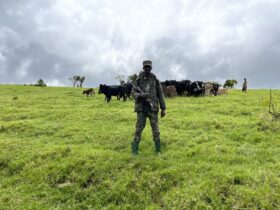
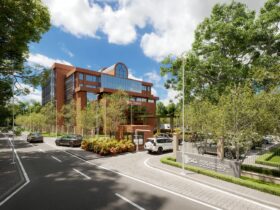



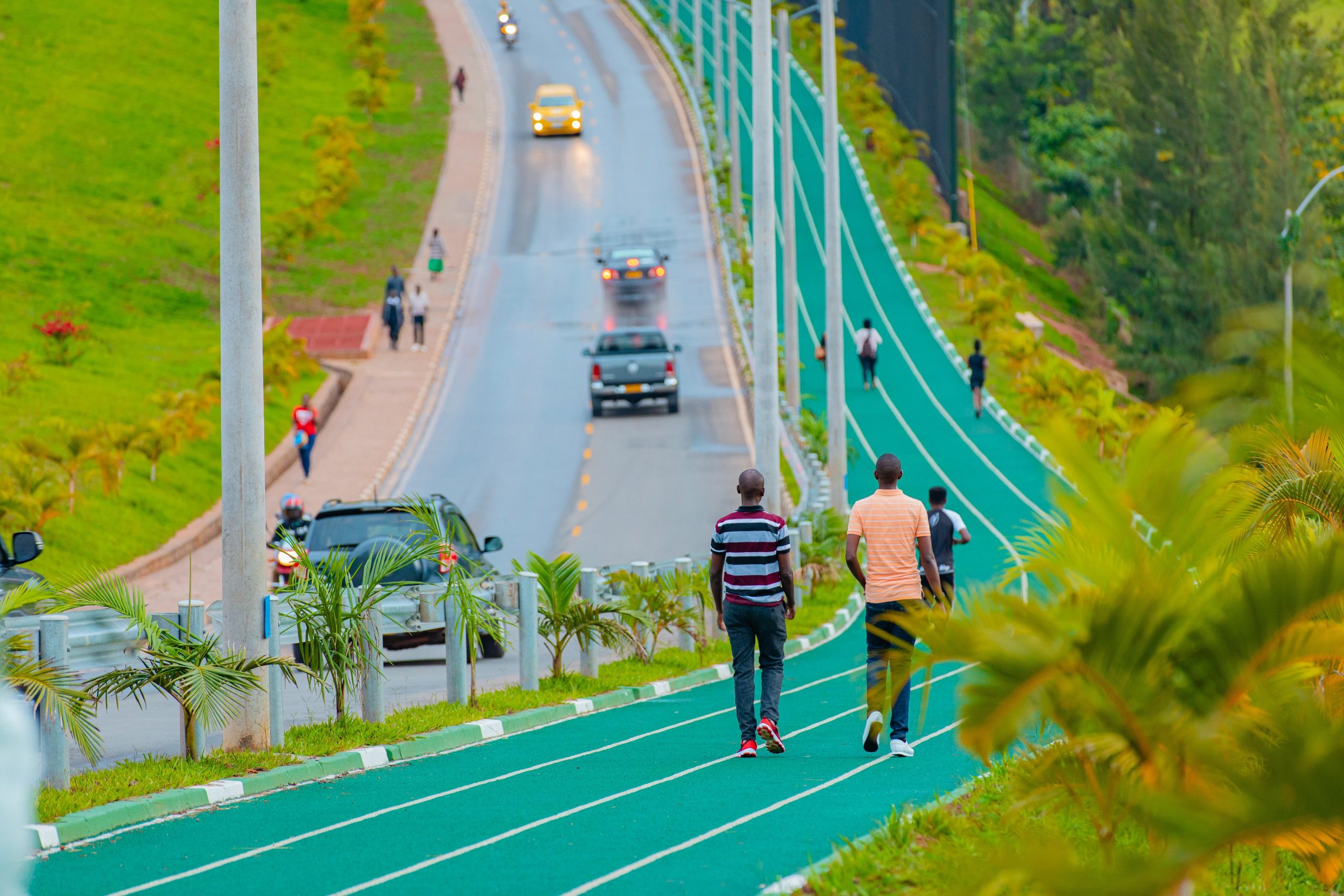



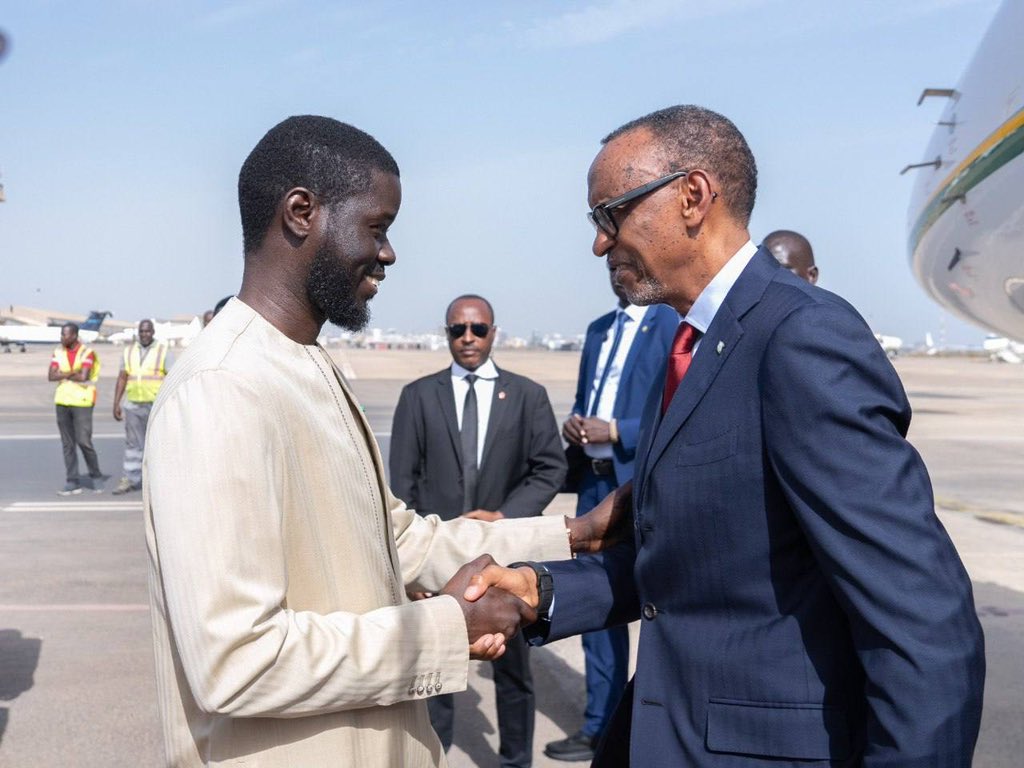
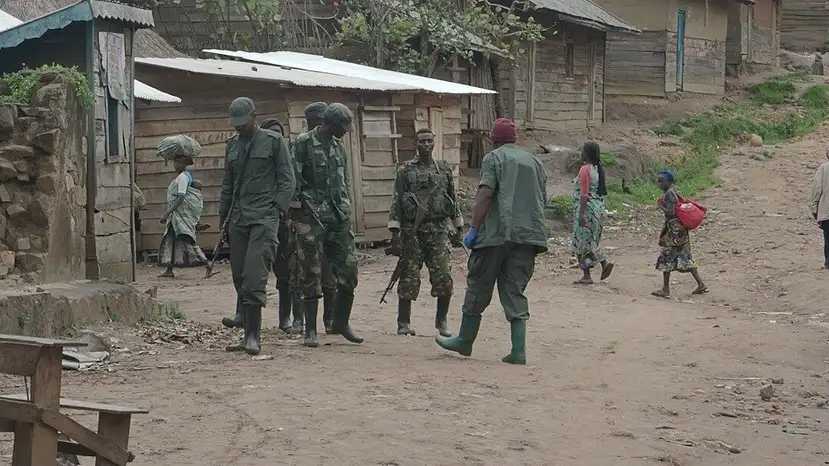
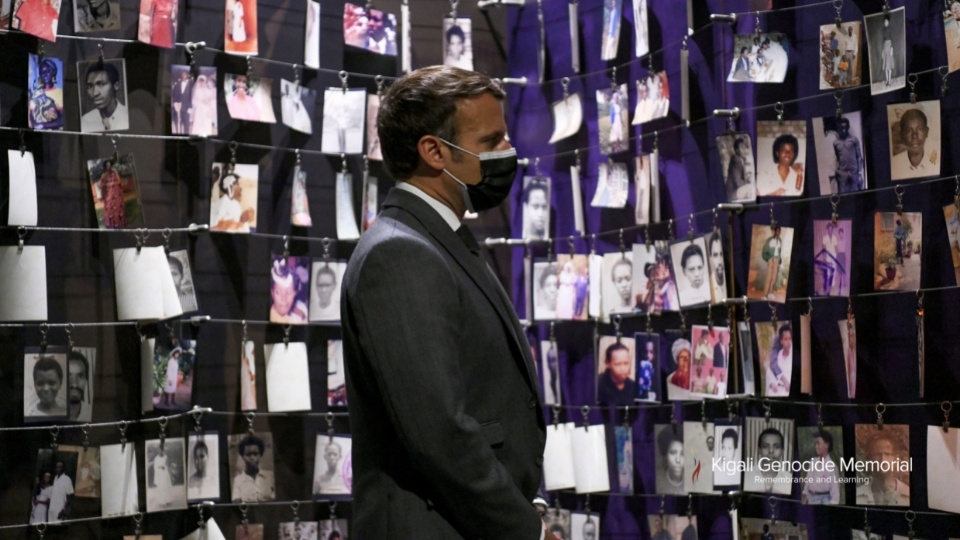
1 Comment